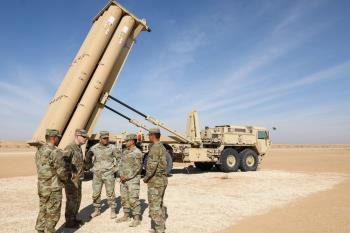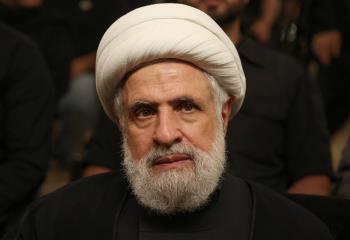Alwaght- One of the historical realities of West Asia region is that whenever the Turkish army has occupied a territory or when it entered a territory with the excuse of providing help, it has not easily left there. Now, This Turkish behavior in northern Iraq is closer to reality, and the Turkish military forces for several times were observed to intervene in this part of Iraq. In the current conditions, Turkey’s government is dreaming of revitalizing the Ottoman Empire’s power using the present-day mechanisms and new procedures.
The deployment of Turkish army units into northern Mosul province, in Bashiqa Military camp, with the relative approval of the Iraqi Kurdistan region’s ruling party Kurdistan Democratic Party (PDK) and at the request of Atheel al-Nujaifi, the former Nineveh province’s governor, could be evaluated as the Turks’ new measures to actualize their long-standing wish of gaining control over Iraq’s Mosul province. The incursion of the Turkish forces into Iraq’s territorial areas has come while the Iraqi officials have called Ankara’s move as violation of the generally accepted international rules and invasion of Iraq’s national sovereignty. One of the complicated dimensions of the issue is the silence of the Western officials, especially the Americans, towards the Turkish army’s deployment. The important question is that when the Russian warplane entered Turkey’s airspace for a few seconds how Ankara had the right to defend its sovereignty’s airspace and the Western countries described it as Turkey’s legal right, but now what specific condition has taken place that when about 120 to 200 Turkish troops have entered the Iraqi territorial regions without Iraq’s central government’s permission no Western country called Ankara’s action as violation of the Iraqi national sovereignty and has not backed up Baghdad’s defense against Turkey’s incursion.
In addition to the silence of the Western leaders along with the international organizations, what can be significantly concerned in Iraq’s political future is the Turkish officials’ exhibition of a malicious intent of seeking an active presence in Iraq’s Sunni-inhabited areas for the several upcoming years. Undoubtedly, the deployment of the Turkish army’s forces in Nineveh province and its other military bases in the Kurdish-populated areas under any pretext in the near future could pave the way for rise of crisis for both the Kurds and the Iraqi central government. In the annals of contemporary Iraq’s history show the reality that the Turks seek the domination over the Iraqi oil-rich regions including Mosul and Kirkuk.”one day our ancestors entered this region while on horseback.There will come a day that we like our ancestors would return to this region but with modern equipment ", asserted Ahmet Davutoglu, then Turkey’s Foreign Minister, during a visit to Iraq’s Mosul in 2009. Such remarks indicate the crystal clear Turkish avarice for these parts of Iraq’s territories. Presently, a condition has been provided that the Turkish army was deployed to Iraq’s Nineveh province without any limitation.
Concerning the threats posed to Kurds as a result of the Turkish army’s presence in northern Iraq, they could look back to the events taken place in the past several decades. Between the 1994 and 1996 when the Kurdish groups were engaged in a civil war, the Turkish military forces entered Iraq’s territory at the Iraqi Kurdistan Democratic Party’s request to help Masoud Barzani-linked forces. However, after the Kurdish civil war ended and even to date, the Turkish military bases are still standing in Kurdistan region, and the Turkish officials, despite the repeated calls by the Kurdish region’s authorities for withdrawing Turkish forces, have refused to pull out of the region’s borders. Additionally, after 2003, the Turkish army has killed the civilians in different areas of the Iraqi-Turkish borders under the excuse of fighting the Kurdistan Workers’ Party’s (PKK) fighters, and many villages were destroyed during those years by Turkey’s fighter jets.
Now, the Turkish leaders should be inquired that following emergence of the terrorist group ISIS in Iraq and Syria the Turkish army has failed to provide support for the peace and security in Iraq’s Kurdistan region, but what happened that now they sent their military forces to Iraq’s territory, claiming that the deployment is for aiding the Kurdish forces and for training them. The fact is that Turkey’s military presence in Iraq could be a serious preparation of the future Ankara’s interventions in the Kurdish region’s internal affairs and could threaten the Kurds’ interests in the future of the West Asia, and it could turn out as a serious threat to Iraq’s unity, because the Turks seek establishing an autonomous Sunni region stretching across Nineveh, Diyala and Salahuddin provinces in order to hold sway there.
The Iraqi officials are well aware of the Turks’ “ill-intentions.” Following the case, Haider al-Abadi, the Iraqi Prime Minister, on December 7, 2015, has set a 48-hour deadline for Turkey to pull back its forces from the Iraqi territory. During his meeting with the German Foreign Minister Frank-Walter Steinmeier, al-Abadi has blasted Turkey’s incursion into Iraq’s land, asking Ankara to immediately withdraw its military units. Currently, the UN mediation is raised to settle the dispute between Iraq and Turkey, which can basically lack the credibility and the moral legitimacy, because it shows that the international organizations and institutions are instruments to impose the viewpoint and will of the big Western powers, especially the United States.


























